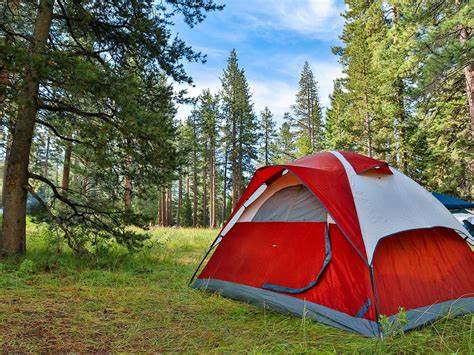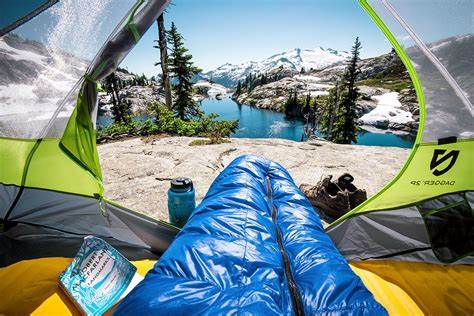
If you belong to a group of nature worshipers who have never ventured into an adventure called camping, it is never too late to go on an outdoor vacation. Staying outdoor has many benefits for both the physical and mental health of people, which you can read more about at this link.
But whatever enthusiasm you have for going on camping, as a first-timer in nature, there is plenty of information to know. Although some things seem simple, you may encounter many unexpected situations that can ruin your stay in nature.
Plan in Advance
The reason why people love camping is the freedom this type of vacation provides. That relates primarily to the locations where you will be staying and the free-time activities. Travel arrangements and hotel accommodations do not allow you so much flexibility. Preparations for camping are no less extensive than going for an all-inclusive vacation or winter break, but they are more relaxed in terms of arranging everything before you leave.
As much as you love the spontaneity of camping, some things need to be planned and researched well in advance. For example, you have to make a reservation for some of the most popular campsites several days in advance. You only want to camp in a tent in warmer months and if you are planning a vacation during Christmas, cabin rentals are a better alternative for the cold. You should also plan your meals, in order to know how much food to bring (unless you plan on eating fast food and snack throughout your camping trip).
Think of the Clothing
As seen on Travel TMI – the #1 guide for travel tips & ideas, it’s good to know the weather forecast for the next couple of days. This information is of great importance to the clothing you will wear. Don’t bring too many clothes, as you probably won’t wear most of them.
Camping clothing should be comfortable and warm, so don’t think about wearing high heels and short skirts. It is about being in nature; not going on fancy clubs and bars. For any type of outdoor activity, you need cozy clothes and footwear, especially if you plan to walk a lot.
The nights in nature are much colder than in the city, so bring warm clothes; extra blankets won’t hurt either. Whether you are staying in an RV or a tent, prepare bug and mosquito sprays and protective webs. These are necessary, especially during the summer nights. Keep makeup, scented cosmetics, jewelry, and other fashion accessories at home.
Make Your Own Comfort

As soon as you decide on camping, you probably realize it doesn’t include luxury accommodation and top-notch room service. Going camping is an adventure, an opportunity to experience something special. Still, that doesn’t mean you have to live like a savage for those few days. Connection with nature is possible without a complete renunciation of the modern way of life.
One of the main advantages of camping is that you choose the location you will be staying at, i.e., the location of your ‘hotel on wheels.’ Even the smallest of things can make your stay in nature easier and more pleasant.
For example, if you bring a lighter and a small gas bottle, you won’t have to wander through the woods during the day and look for the woodpile. Treat yourself with an extra pillow or blanket; bring portable TV to entertain in long, sleepless nights in the tent. These ‘luxuries’ will make your camping experience much more enjoyable.
Keep to the Route
The main tip for camping first-timers is to stick with the itinerary. It is a new and exciting experience, but don’t risk things you still don’t know. You can easily get lost, or your camper may break down in the middle of nowhere.
Don’t explore alternative routes or go to unknown places for the first time. Leave that for another time, when you have a camper experience. Even then, it is best to stick to the main roads. You can always find a gas station, a shop, a phone, or a towing service there.
But in case you lost in nature, check below what to do:
http://www.lovetheoutdoors.com/camping/act/hiking/lost.htm.
You never know what to expect during vacation, so prepare yourself for as many circumstances as possible. An emergency kit is a must, so as medications and protective sprays and lotions. Be sure to bring a portable toolbox. You may not need any of this, but better safe than sorry.


